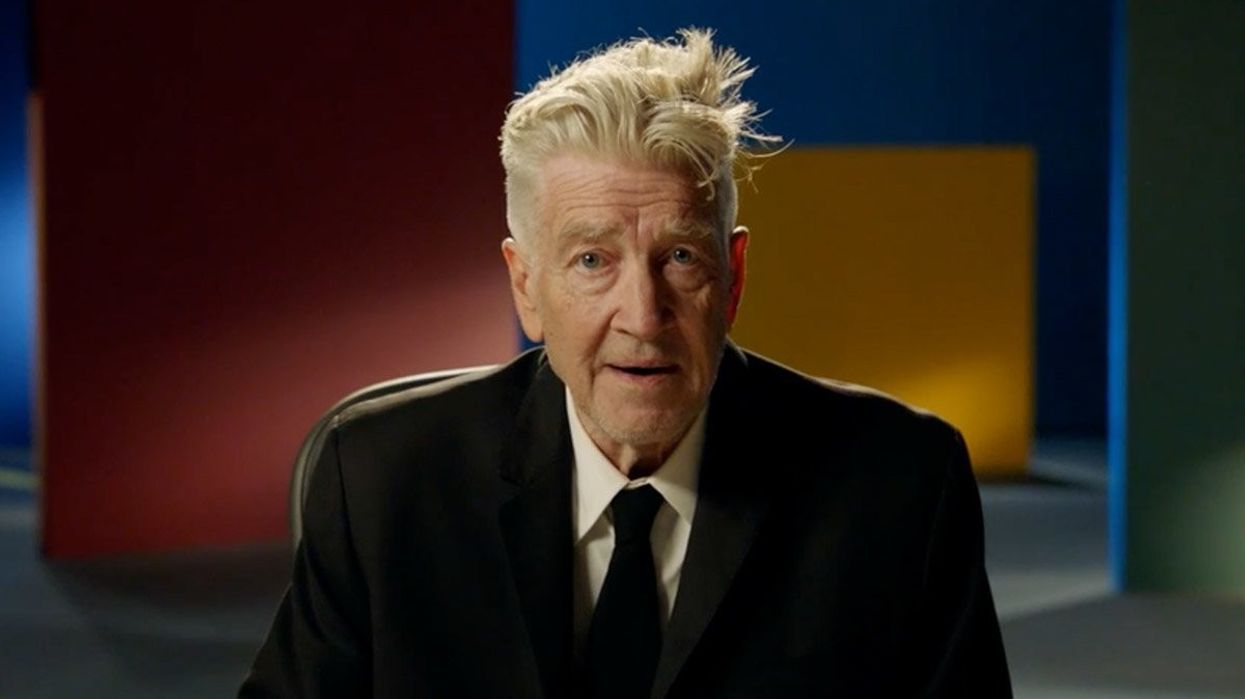Need a Good Primer on David Lynch? Watch This 2-Hour Breakdown
David Lynch wants to look into your nightmares. Will you let him?

What was your first introduction to David Lynch? For me, it was watchingBlue Velvet on my laptop when I was in high school. It was one of the first DVDs I ever received from Netflix and I'll tell you what, I never looked at the white picket fences in my neighborhood the same way ever again.
Lynch's aura has carried throughout pop culture. He's directed television, film, and inspired the term, "Lynchian," but what fits his mold?
How is it possible that this prolific filmmaker is still such a mystery to us? And how can we come to understand this "nightmare filmmaker," as Cinema Cartography has labeled him...
Out darkest fears and the complete unexpected reside within him.
So let's go deeper into David Lynch.
Who is David Lynch?
Born in 1946, David Lynch is a writer and director who film critic Pauline Kael called "The first popular surrealist filmmaker." He's best known for films such as Eraserhead, The Elephant Man, Blue Velvet, Mulholland Drive, and for his television series, Twin Peaks.
When it comes to creating film and television, Lynch has become famous for the way he makes his audience feel. In his words, "I look at the world and I see absurdity all around me. People do strange things constantly, to the point that, for the most part, we manage not to see it. That's why I love coffee shops and public places—I mean, they're all out there."
What is Lynchian style?
While we know auteur theory stretches over directors like Lynch, I can think of only a handful of people whose surnames also describe the gut feeling you get from watching their work. For Lynch, there's some unease here. His career is built on making the world peel back its own layers, as well as setting up a surreal quality so we can see both our point of view and what Lynch wants us to see.
So what is Lynchian?
I think David Foster Wallace said it best: "Lynchian: a particular kind of irony where the very macabre and the very mundane combine in such a way as to reveal the former's perpetual containment within the latter."
Soundscapes
One of the things Lynch does in all his movies is create incredible soundscapes that engage with us on another level. When speaking about Twin Peaks with Indiewire, Dean Hurley, who manages David Lynch's sound studio, said, “In the telling of that story, people skip over the wind part and jump to the painting started to move...That’s the romantic essence of David. The fact that the image is making him hear something. Then later in life, with his filmmaking, he ends up working with Angelo [Badalamenti] composing before they’ve even shot things. Those sounds, that music, ends up conjuring the images.”
This is how Lynch builds his worlds. I think it is so interesting.
Think about how his movies have distinct sounds. Like in Blue Velvet, it's ants crawling below the grass, or in Eraserhead, it's an offputting tone.
Surrealist Cinema
Surrealist cinema was directly linked to Surrealism in literature and painting. According to Andre Breton, "Surrealism [was] based on the belief in the superior reality of certain forms of association, heretofore neglected, in the omnipotence of dreams, in the undirected play of thought." Influenced by Freudian psychology, Surrealist art sought to register the hidden currents of the unconscious, "in the absence of any control exercised by reason, and beyond any aesthetic and moral preoccupation."
As we talked about earlier, Lynch is a master of what is not really there. Like Dali before him, Lynch likes bringing us into worlds that are a little off.
In contrast to early surrealists, Lynch grounds his surrealism in normalcy. His characters are almost fighting between the real world and the world they think they see. These people have a world they want to see, and instead, they're greeted with a harsh reality.
One where people like Lauren Palmer are dead.
It's also one where we have many mundane details. Like just wanting to be in love with a girl who won't love you back, as in Blue Velvet.
Duality of Existence
The last part of Lynch I wanted to look at from the video is the idea of duality. There are two parts to every person, there are two parts to every world, and there are two parts (or more) to every plot.
This duality of man makes sense. Lynch loves philosophy and he loves moral conundrums. But seeing two worlds is something special. Instead of telling his characters there are real and fake worlds, he shows what it's like to have perspective.
Think about a movie like The Elephant Man, where we see the world as it treats the rich and beautiful...and famous...versus the way the world treats the poor and the vulnerable.
The same goes for a head-scratcher like Mullholland Drive, where we get a world of an amnesia-stricken woman who has to determine what is a memory and what is really happening.
Is what we're seeing a dream, reality, or a combination of both?
That's where Lynch is at his best—asking us to see the Lynchian properties at work and making us capture our own examples.
Are you a Lynch fan? What do you think of this analysis? Anything else you'd add to our deconstruction that you learned in the videos?
Let us know in the comments.
I'm excited to hear your real and surreal thoughts.
Source: Cinema Cartography











